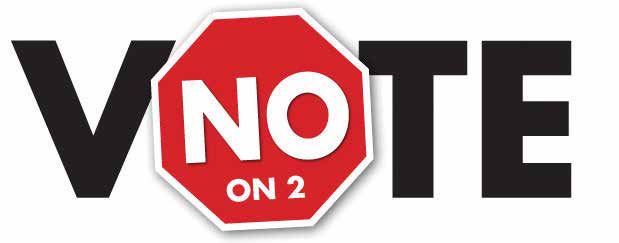Could cause serious economic harm, hinder resource development
Ballot Measure 2 does not renew Alaska’s tested coastal management program, which expired in 2011. Measure 2 allows coastal districts the power to overlay State and federal statutes with a new, complex regulatory regime. This new level of red tape not only affects resource development projects but could impact property owners in coastal regions.
A coastal zone management measure on the August primary ballot is confusing, poorly written and easily could hamstring development activities statewide, says a new coalition formed to fight the ballot measure.
“Vote No on 2” is organizing the statewide campaign and officially registered with the Alaska Public Offices Commission as a ballot measure group on June 4.
The “Vote No on 2” campaign co-chairs are Judy Brady of Anchorage, Lorna Shaw of Fairbanks, and Kurt Fredriksson of Juneau. The group’s treasurer is Cheryl Frasca of Anchorage.
“Alaskans support effective, responsible coastal management, but this measure will create confusion and uncertainty,” said Brady. “It will impose a new undefined set of rules and standards that give unprecedented and un-checked powers to an entirely new body unaccountable to the voters,” Brady said. “It creates more government red tape and grows the bureaucracy. Plain and simple, this is a vague, poorly drafted bad law that will spawn delays and endless litigation.”
RDC, the Alaska Oil and Gas Association, the Alaska Miners Association, the Council of Alaska Producers, the Alaska State Chamber of Commerce, the Alaska Support Industry Alliance, Associated General Contractors of Alaska, and others are working with Vote No on 2 to defeat the ballot measure.
“I think the leadership of our campaign demonstrates how widespread concern is over this measure,” said Rick Rogers, RDC Executive Director and co-treasurer of Vote No on 2. “Our group includes a former DEC commissioner, Kurt Fredricksson of Juneau, who spent twenty years working in coastal management; a former commissioner of DNR, Judy Brady of Anchorage, who appreciates the problems permitting delays and regulatory bureaucracy can create for investment and job creation, and Lorna Shaw, a business leader from Fairbanks, and someone who has spent her career in Alaska’s mining industry.”
Fredriksson said a coastal management program is needed, but not this one. “If this law is passed, it is going to set us back, it’s not going to let us move forward,” he said.
Vote No on 2 will bring together concerned Alaskans from across the state, Shaw said. “This measure will hurt our economy and cost Alaska jobs. It creates a confusing web of conflicting rules that have not been subject to real review. It opens the door to political squabbling over Alaska’s resources. Over the upcoming weeks we’ll be expanding our statewide organization to inform Alaskans and stop this misguided measure.”
A major concern with the ballot measure is that local districts could adopt enforceable policies that effectively veto, halt or delay projects that fully comply with all state and federal requirements.
RDC is not opposed to a coastal zone management program in Alaska. In 2011, RDC supported the passage of HB 106, which represented a finely crafted compromise that would have extended the then-existing ACMP. The bill passed the House by a unanimous 40-0 vote. It had broad support among different constituencies, balanced competing needs, adhered to the Governor’s guiding principles for potential changes to the program, and most importantly, went through a robust public process.
RDC’s stated policy position regarding ACMP remains that it will oppose a program that shifts decision making authority from the Department of Natural Resources to other entities, adds process, duplicates state or federal requirements, or impedes or delays progress on resource development. Unfortunately, the ballot measure stands in direct conflict with this position.
“RDC recognizes the importance of an ACMP program and supports a long-term process to address local concerns,” Rogers said. “We applaud efforts for local input while trying to maintain a predictable process that does not allow district involvement in areas already regulated by state or federal law.”
RDC members are encouraged to sign up as a supporter of Vote No on 2 and to “friend” the campaign on Facebook. Vote No on 2 can be found on Facebook at: facebook.com/protectalaskasfuture.Follow the campaign on Twitter at VoteNoOn2AK or votenoon2.net.

Return to newsletter headlines